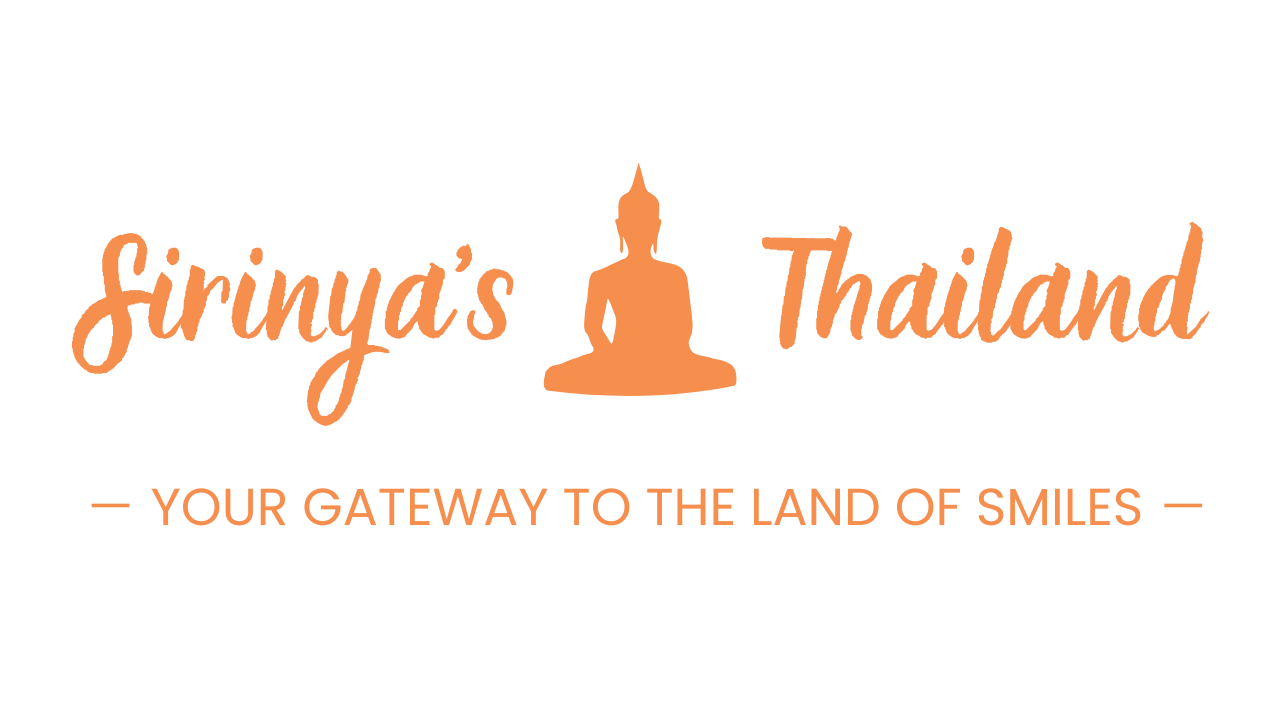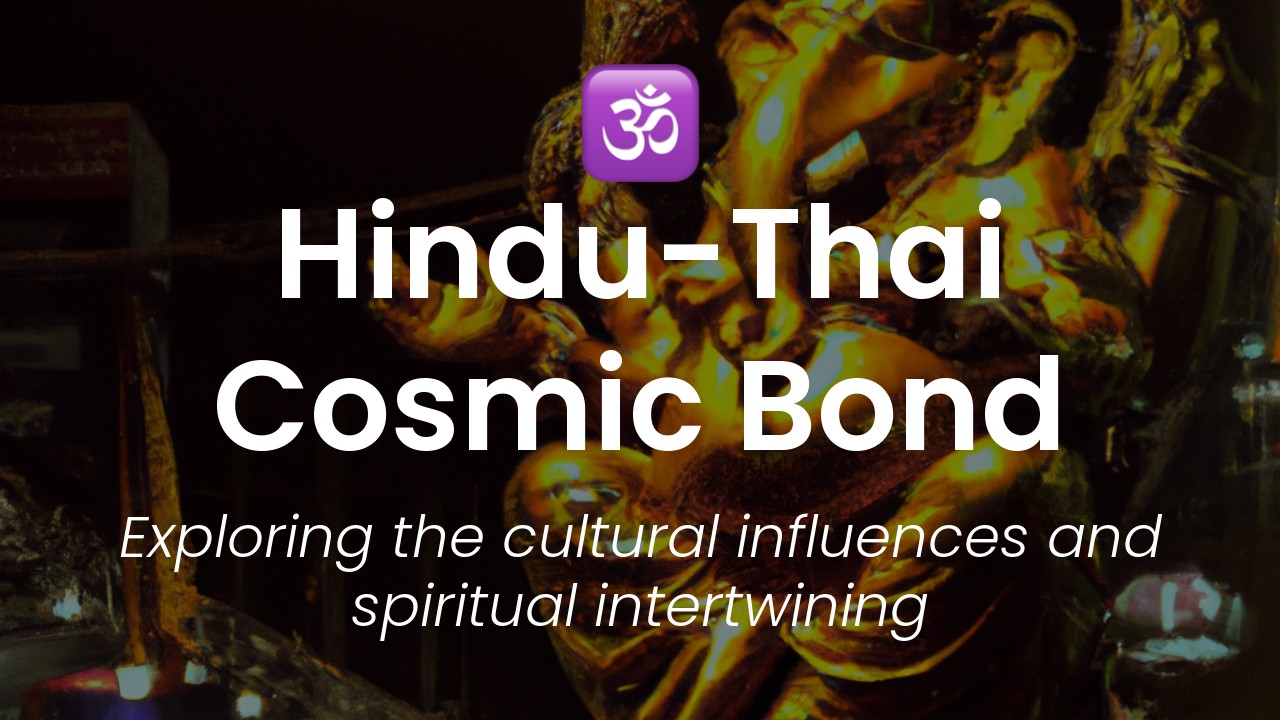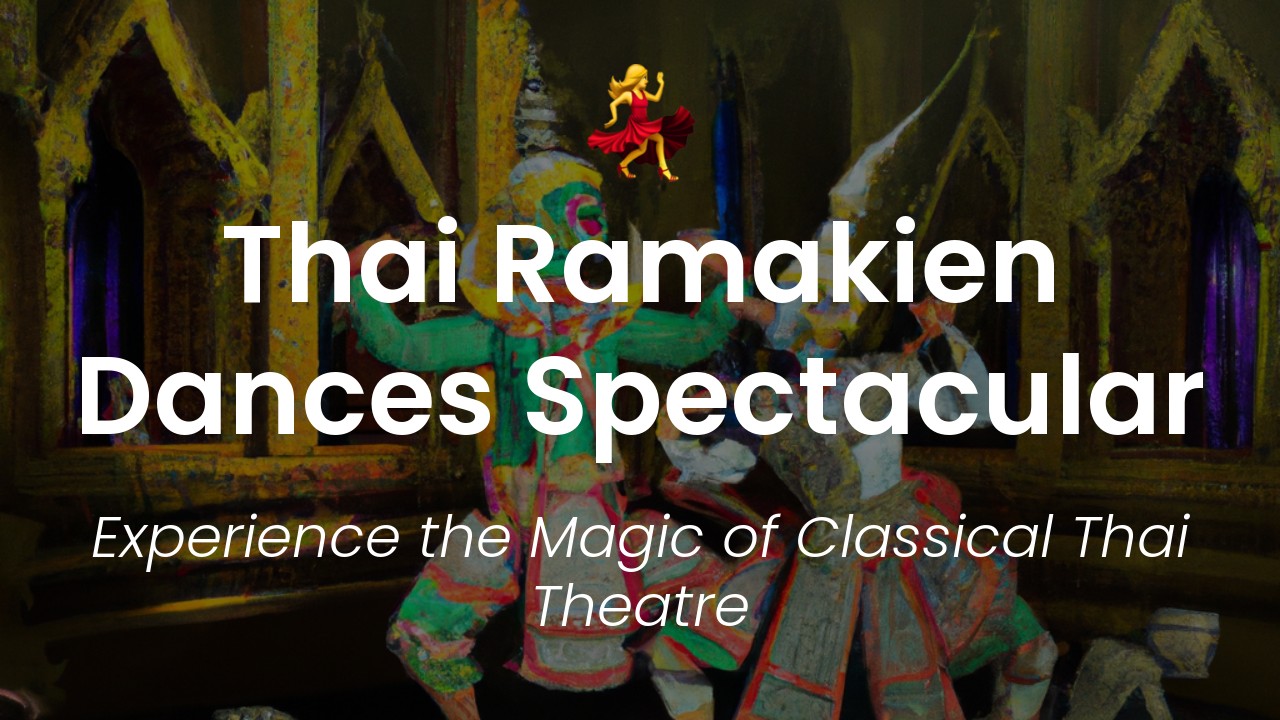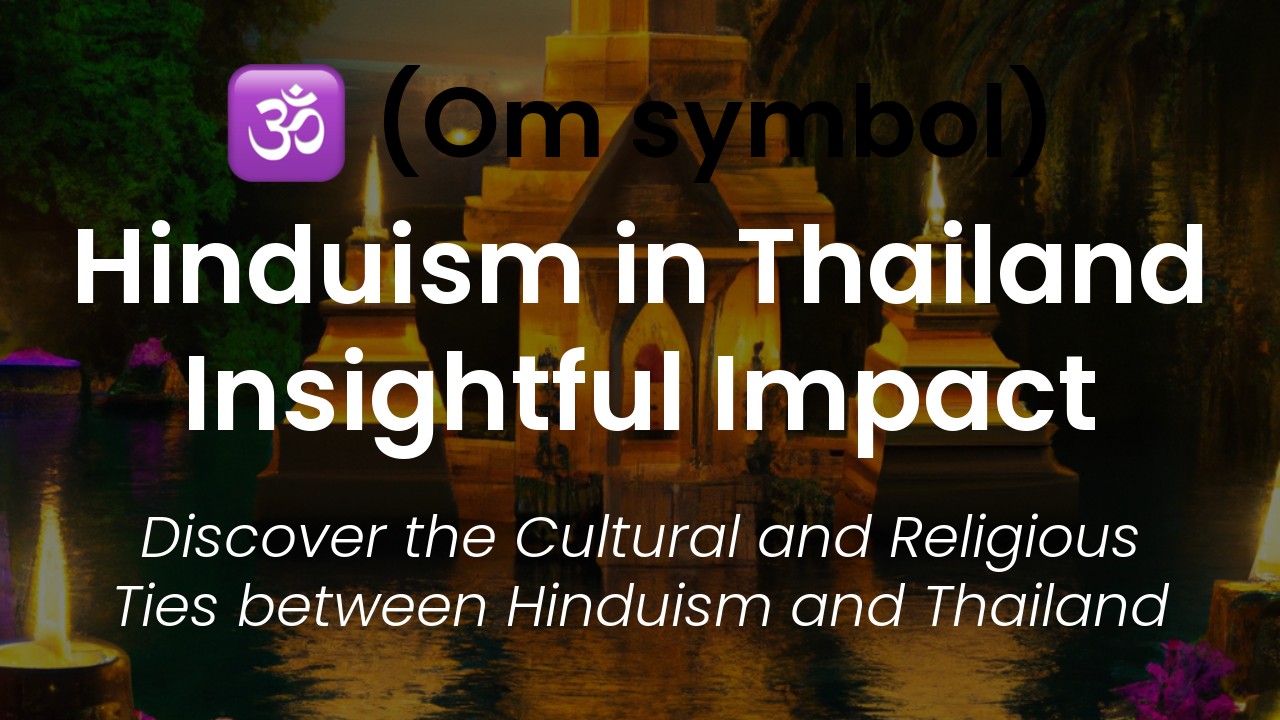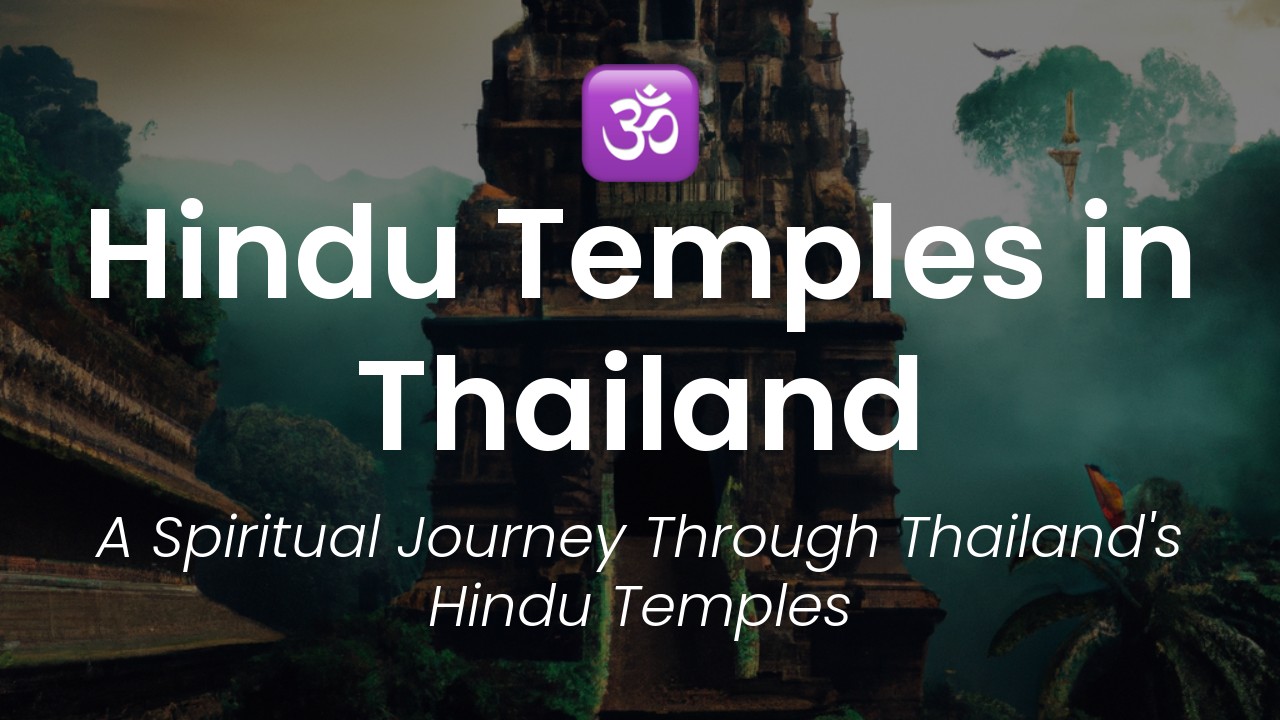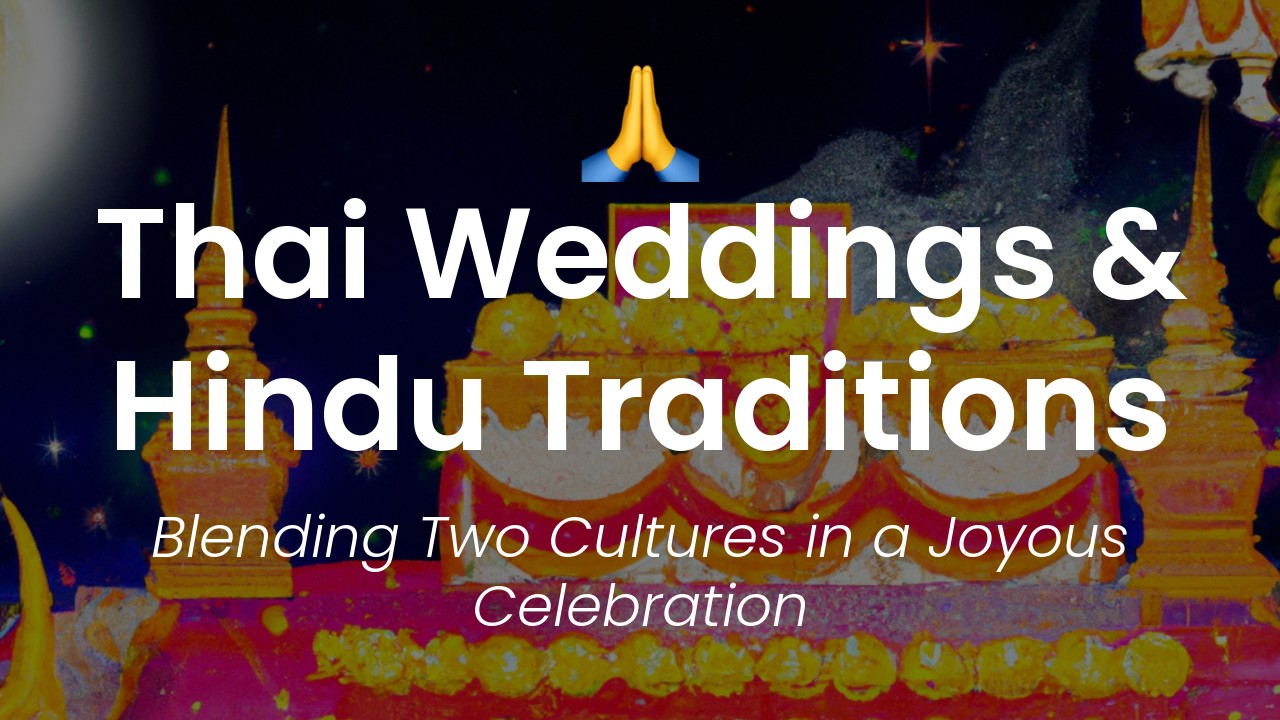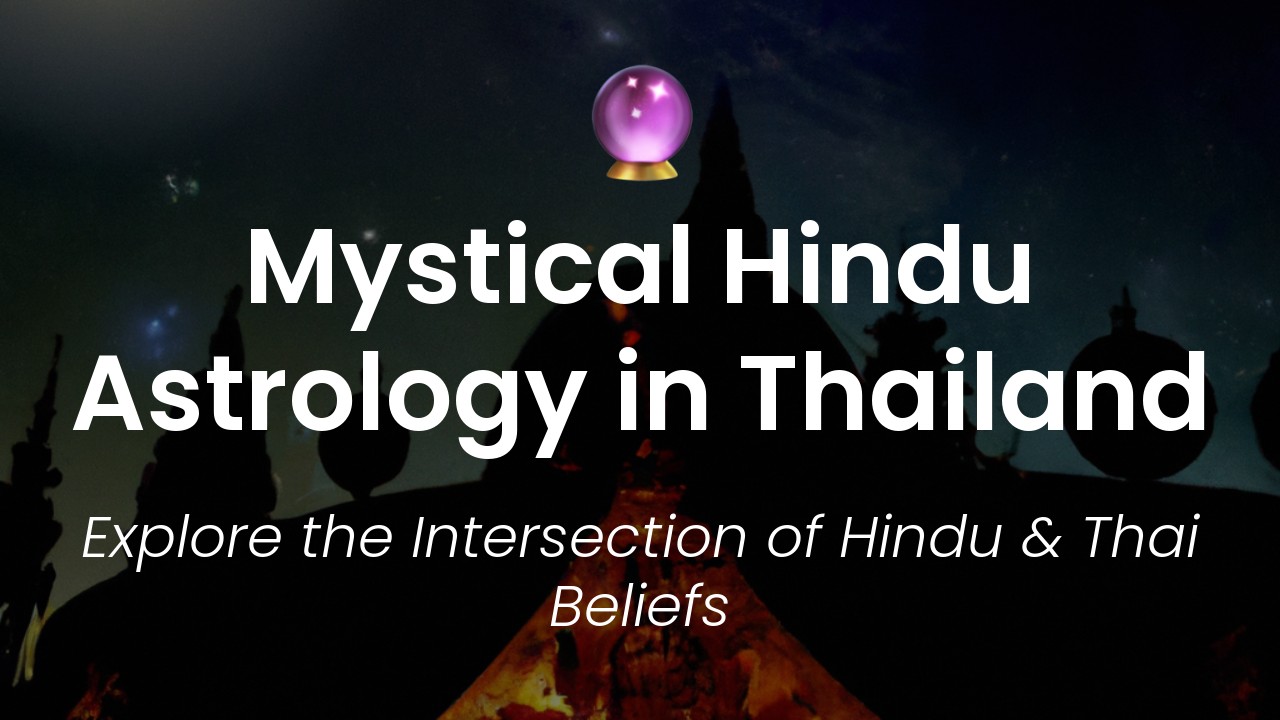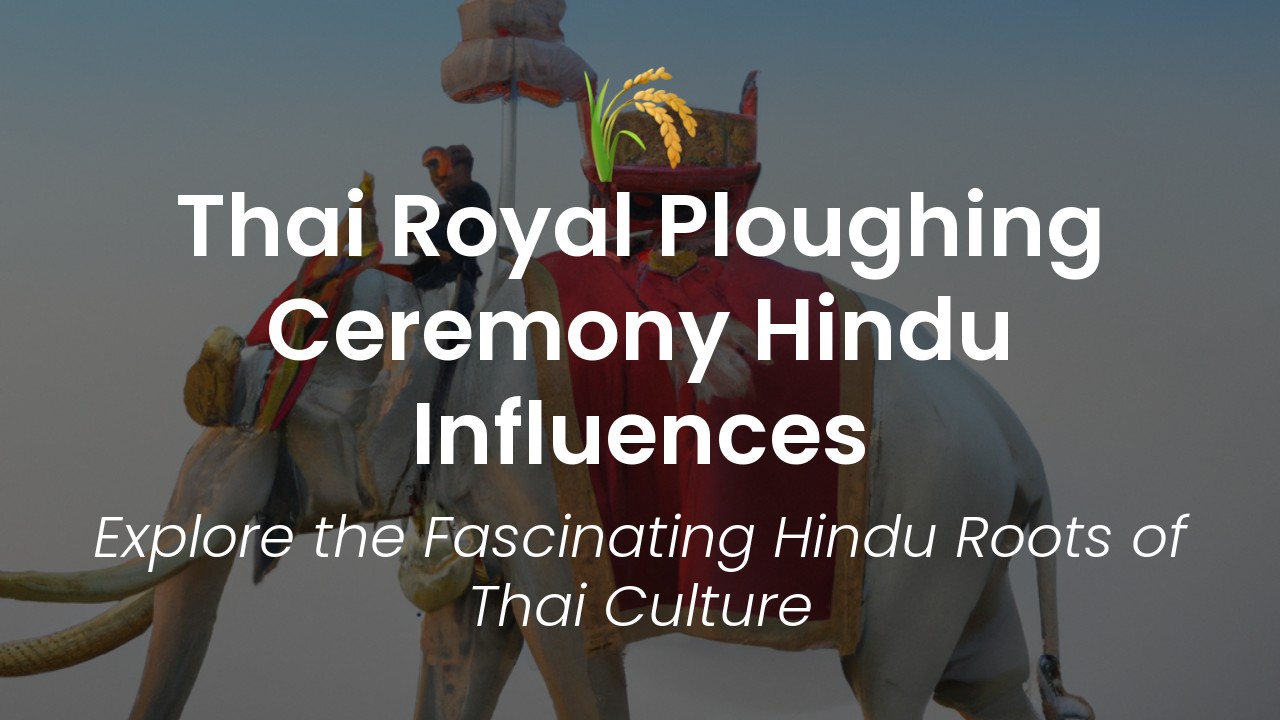As a Thai woman, I have always been fascinated by the intricate and beautiful cultural practices in Thailand. One of the most intriguing aspects of Thai culture is the deep connection between Thai beliefs and Hinduism. Thailand's close proximity to India has resulted in a rich cultural exchange that has influenced the country's architecture, art, customs, and even its cuisine.
But have you ever wondered how Hinduism and Thai culture became so intertwined? The answer lies in Hindu cosmology, which forms the basis of many Thai religious beliefs. In this article, we will explore this fascinating connection and how it is reflected in Thai traditions and customs.
Hindu cosmology is the study of the structure and evolution of the universe according to Hindu beliefs. It is a complex system that includes many deities, myths, and legends. One of the main concepts in Hindu cosmology is the idea of cyclical time and the constant cycle of creation, preservation, and destruction. In Thai cosmology, this is reflected in the belief in the three worlds – the world of desire, the world of form, and the formless world – each of which corresponds to a different aspect of the cycle.
In Thailand, many of the country's most important religious practices are deeply rooted in Hindu cosmology. From the design of ancient temples to the colorful customs of modern festivals, the influences of Hinduism are clear. By understanding the connection between Hindu cosmology and Thai culture, we can gain a deeper appreciation for the unique and beautiful customs that make Thailand such a special and intriguing place.
Introduction to Hindu cosmology
Hindu cosmology, which is based on the concept of cyclical time, has had a significant influence on many cultures in Southeast Asia, including Thailand. Hinduism's intricate, mythological pantheon also played an essential role in the evolution of many aspects of Thai culture.
Thailand, also known as the Land of Smiles, is a country that is steeped in rich history and culture. It has a unique blend of Buddhism, Hinduism, and Animism that reflects in its art, customs and beliefs. The Indian subcontinent, and particularly Hinduism, has played a significant role in shaping Thai culture. Thai people adopted many Hindu cultural and religious beliefs and incorporated them into their own.
Introduction to Thai culture
Thai culture is predominantly Buddhist, but it is still a blend of its own unique cultural elements and influences from India, China, Cambodia, and other Southeast Asian nations. This diversity is reflected in Thai dance, art, architecture, music, festivals, and beliefs.
Thai cuisine also bears an indelible imprint of Indian influence on it, evident in the rich flavors, spices, and herbs used in Thai recipes. The deep-rooted connection between Hindu cosmology and Thai culture can be observed in many cultural expressions, as we will explore next.
Connections between Hindu gods and Thai deities
Many of the Hindu deities, such as Brahma, Shiva, Vishnu, and Naraka, are also worshiped in Thailand. However, their names and attributes differ slightly in Thai culture. For example, Lord Vishnu is known as Phra Narai or Narayana in Thailand, and Lord Shiva as Phra Isuan.
Thai mythology also features unique deities such as the King of the Nagas, who protects the underworld, and a giant demon Ravana. Ravana is an essential figure in the Hindu epic Ramayana and is revered in Thailand for his courage and intellect.
The Hindu belief in multiple divine forms and avatars of gods can also be observed in Thai culture. For example, the Thai people believe that the Kings of Thailand are reincarnations of the Rama, the hero of the Ramayana.
The influence of the Ramayana on Thai dance and theater
The Ramayana epic has had a significant impact on traditional Thai dance and theater. The ancient tale of the brave and virtuous Rama and his love for the beautiful Sita has been adapted and retold for centuries in Thailand.
The Khon, a traditional Thai dance-drama, features elaborate masks and costumes that tell the story of the Ramayana. In Thailand, the dance-drama has been performed for centuries and is considered one of the greatest Thai cultural expressions.
The influence of the Ramayana can also be seen in the classical Thai dance known as the Ramakien. The performance narrates the epic story of Rama and his journey to rescue Sita from the demon king Ravana. The popularity of the Ramakien has made it a standard cultural reference point in Thailand, even featuring as a popular daytime soap opera.
Thai Buddhist beliefs and their connection to Hinduism
Thai Buddhism has been significantly influenced by Hinduism. Buddhist temples and shrines in Thailand often feature images of Hindu deities and references to Hindu mythology.
The story of the Ramayana is particularly relevant to Thai Buddhism because it emphasizes the importance of moral values and the battle between good and evil. The story also teaches the virtues of loyalty, commitment, and sacrifice.
In Thailand, the Buddhist concept of karma has some similarity to the Hindu principle of cause and effect. The belief that one's present actions influence their future lives is central to both religions.
Traditional Thai festivals inspired by Hindu mythology
Many of the traditional Thai festivals have roots in Hindu mythology. The most important of these festivals is Songkran, the Thai New Year, which has close ties to the Indian festival of Holi.
Other festivals, such as the Phra Buddha Baht ceremony, which is celebrated at the start of the rainy season, and the Chulalongkorn Day, an annual public holiday commemorating the death of King Chulalongkorn, also feature Hindu cultural references.
Hindu and Thai astrology: similarities and differences
Astrology plays an essential role in both Hindu and Thai cultures. In Hinduism, astrological predictions are made based on an individual's birth chart, which shows the position of the planets and constellations at the time of their birth.
Similarly, in Thai astrology, horoscopes are made based on the day of the week on which a person's birth took place. The seven days of the week are attributed to different Hindu deities.
One significant difference between Hindu and Thai astrology is that Hindu astrology has several categories of predictions for different aspects of life, such as health, wealth, and relationships. In contrast, Thai astrology focuses mainly on character analysis.
Conclusion
In conclusion, the influence of Hindu cosmology on Thai culture is undeniable. It's an intricate blend of beliefs, customs, and ways of life that have evolved over centuries and have been shaped by factors such as trade, migration, and political alliances.
The fascinating connection between Hindu cosmology and Thai culture can be seen in many aspects of daily life, from the worship of the gods to the way festivals are celebrated. The lessons of good versus evil, the importance of moral values, and the acceptance of multiple divine forms are cornerstones of Thai culture that owe much to the roots of Hinduism.
